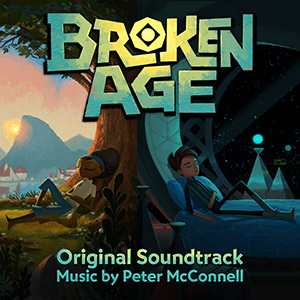August 7, 2015 Peter McConnell is a legend in games audio, with his work stretching back decades and his mark made on some of the most beloved games of all time. You may have heard his music in any number of classic LucasArts games (Grim Fandango!), or more modern fare like Blizzard's phenomenally popular Hearthstone or Double Fine games like Broken Age. Regardless of the banner under which his stamp has appeared, Peter has crafted a musical legacy full of life and character, and we were honored that he was able to offer us some of his time and answer our questions.
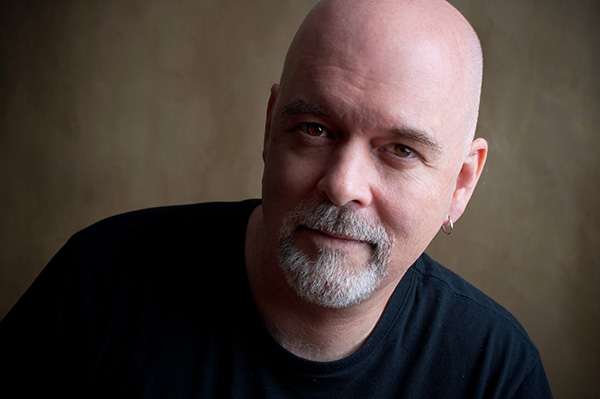
Peter: I've been into music as long as I can remember. I was classically trained on violin and taught myself guitar and banjo in high school. After starting out as a physics major at Harvard, I took some time off to study with a Third Stream piano teacher at New England Conservatory, one of Ran Blake's students. Returning to school, I studied under electronic composer Ivan Tcherepnin, who made a lasting impression on my artistic life. My first job out of school was as an audio programmer at Lexicon, a company that makes high-end reverb units. One of my school classmates, Michael Land, also worked at Lexicon, and we had a plan to move out to California and start a band. He got out here first and got a job at LucasArts, starting their audio department. By the time I got out here, the band idea had fizzled, but Michael needed help designing a new music system at LucasArts, and then writing music for it. I thought that was about the coolest job you could imagine. So I was really in the right place at the right time.
Peter: I've worked with Double Fine since they were started, and with Tim Schafer going back to about 1991 at LucasArts. I've always started with the concept art, for both characters and backgrounds, and it's that way with Double Fine today — I try to get as much art as I can as soon as possible. I pick what I think are the most evocative images, and then keep them up on a screen always as I write. Ideally, I have some advance time to play around with themes before the music production process really starts.
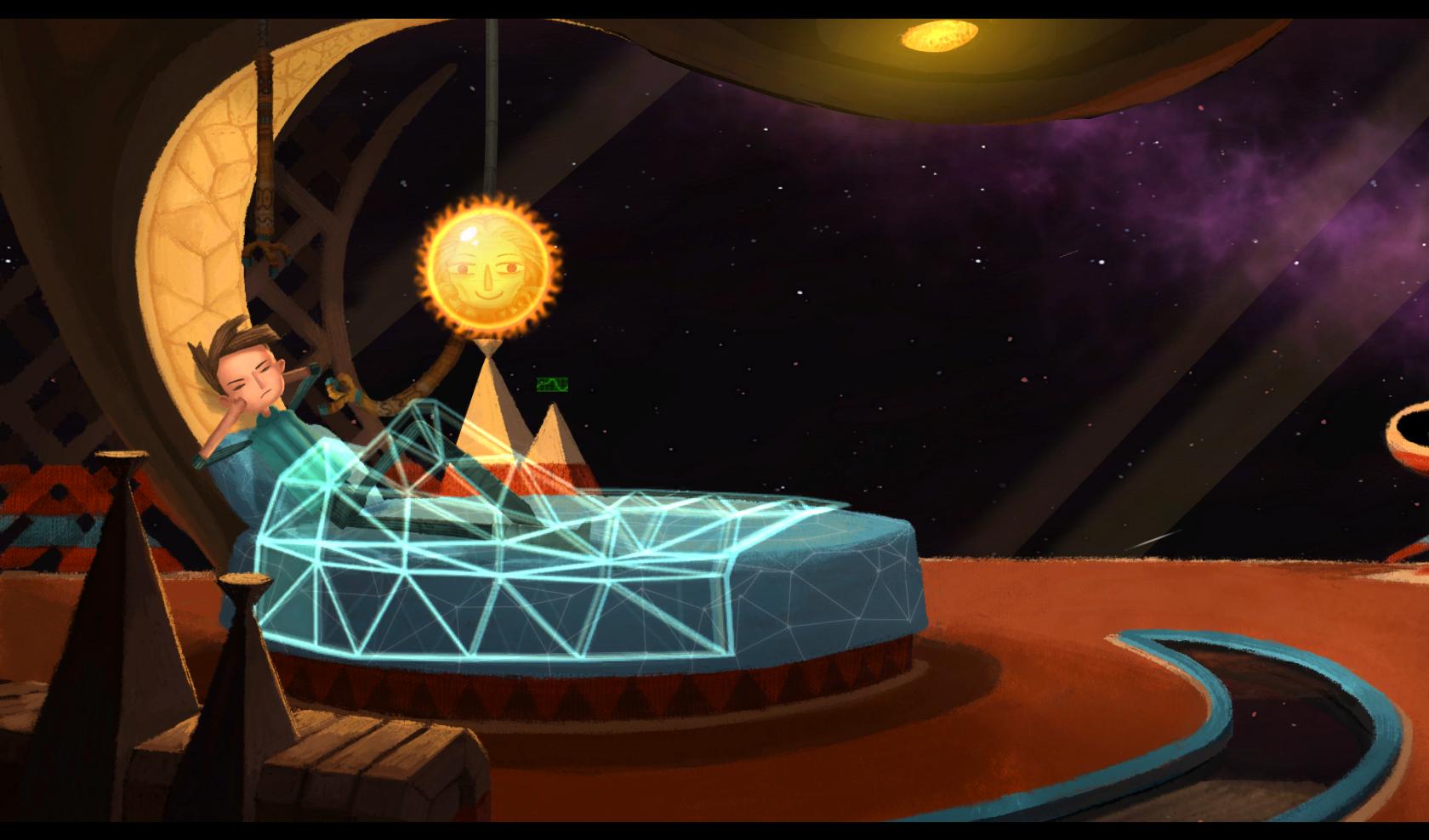
Peter: Grim and Broken Age were very different, because with Grim I had a good idea in advance of what the scope of the music would be, and there was plenty of time to do research for it. Tim loaned me his collection of Humphrey Bogart movies, and some obscure vinyl records of a kind of Mexican folk music called Son. There was a long period where I was just looking at Peter Chan's black and white concept art and humming tunes into my hand-held cassette recorder. I would record those into my computer and program them into a map-like representation of the game we developed using our music system tools. We had also recorded Tim talking about each location in the game and programmed it into the map, so the score gradually turned from a bunch of recordings of Tim talking about each place, to a bunch of crude melodies that I sang and played on piano, to mockups with samples, to final finished live recordings.
With Broken Age, the process was much more fluid, largely because the scope of the score was able to change so much during the production. I say able to change because it was initially quite a challenge to come up with a sound that would have the organic quality live players bring to the music while staying within our small budget. As we got further into development, it became clear that a number of situations in the game called for a really big sound — for example, when Shay first steps out into space on his own, or when Vella first encounters Mog Chothra. I could have done these with a sampled orchestra, but I really didn't want to. But how could we ever afford that number of live players?
Then a small miracle happened. I happened to be working on a suite of Grim Fandango music for Melbourne/Queensland Symphony orchestras, and it turned out that my contact with the groups, Andrew Pogson, was a backer of Broken Age, and he suggested the possibility of our recording some Broken Age music with the Melbourne Symphony. I said, "You read my mind," and after a lot of discussion between all the parties involved, we were able to make a dream come true — live recordings with a world-class orchestra for Broken Age! This was quite an evolution from the original vision for the score.
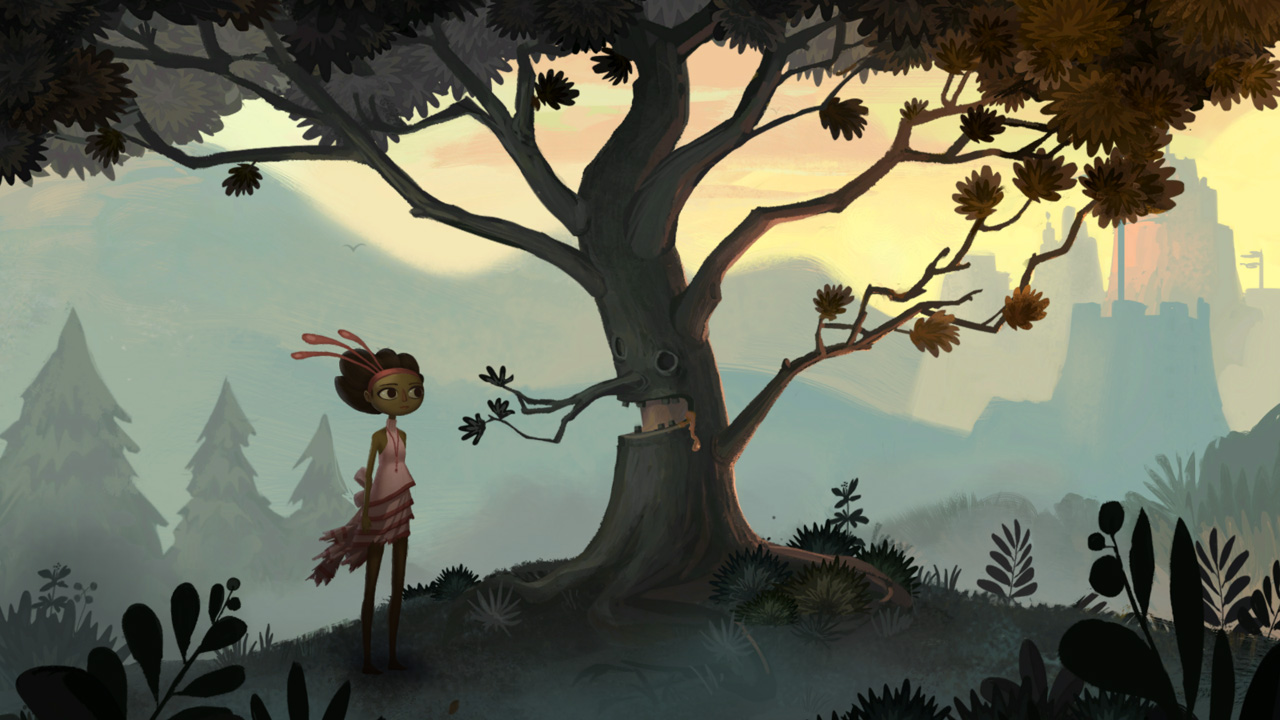
Peter: I'm working on Plants vs. Zombies: Garden Warfare II — which is like a non-stop high-energy synth-pop party. This time we are adding a guitar-driven edge to the score, and I always love the opportunity to play guitar. I'm also working on continuing editions for Plants vs. Zombies 2, each world of which is like a new universe unto itself. In addition, I'm helping out with Day of the Tentacle Remastered, one of the earlier titles I worked on at LucasArts.
Peter: Working on Grim Fandango Remastered wasn't so much a matter of revisiting the material as it was simply picking up where I had left off. It was an extension of the final phase of the project — the recording, mixing and quality control. While I was extremely happy with the original jazz recordings, it always bugged me that we weren't able to bring the same production values to the orchestral part of the soundtrack. So it was a great gift to get that kind of a second chance. From the detective work and technical expertise it took just to retrieve the assets, it was a string of miracles and a labor of love for all involved. And it was a treat to work with Melbourne Symphony Orchestra and the teams at Sony and Pyramind in San Francisco to bring it all to life.
Peter: Yes absolutely, because with Hearthstone I am scoring something more imaginary. The drama in Hearthstone isn't in the story or the extremely cool visuals, but in the energy that happens when people compete against each other. You can't really work with a video of gameplay in that situation, or play against yourself. In fact the original idea of the music was much lighter and more whimsical, and the early demos I did reflected that. Then I went to visit Blizzard and saw guys actually playing it against each other, hard-core. Then I was like: "I get it! This is a bar brawl!" That changed everything. Now every Hearthstone piece I write, I picture that bar brawl.
Peter: I like to think it has gotten a little more refined, which is to say that I like to think I actually know what I am doing now. But in essence, the process hasn't changed all that much. I'm still very focused on melody. It's just that now I start with an iPhone instead of a hand-held tape recorder. Paper still comes in handy for the big themes, too.
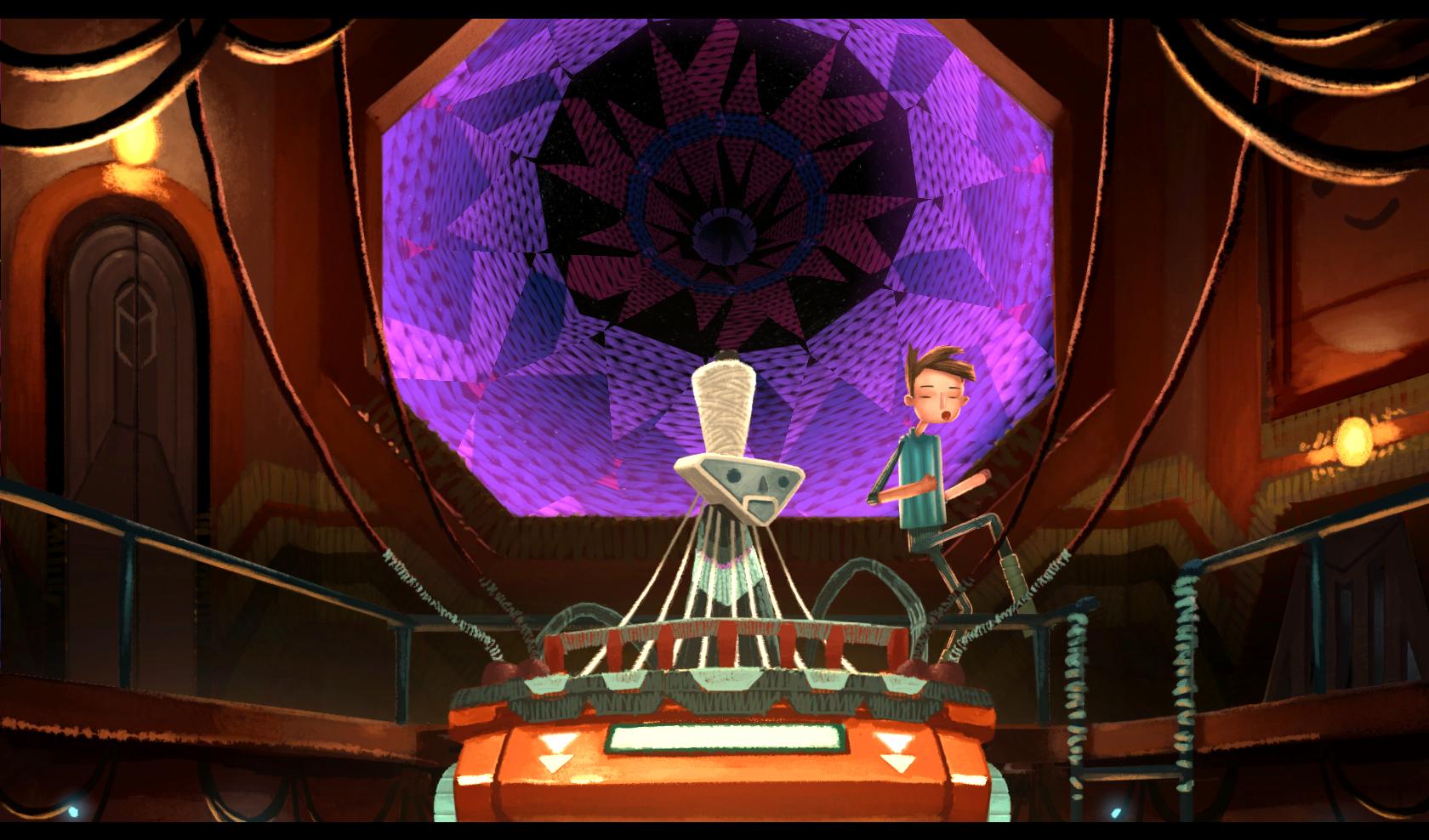
Peter: In games, I've always admired my colleague Michael Land's ability to write a timeless, perfectly burnished melody. I'm a big fan of Jason Hayes' and Russell Brower's themes, and Austin Wintory's absolute mastery of melodic orchestral voicing. I admire Garry Schyman's structural clarity and willingness to stretch genre boundaries, as well as Marty O'Donnell's uniquely epic sonic vision. Outside of games, I've always been a big fan of Randy Newman because he brings such depth and knowledge to a form that seems at first glance to be simple. I also grew up on '70s crime shows, so Lalo Schifrin is always in the back of my mind. Then there's my love of old swing and folk forms like bluegrass and delta blues — everyone from Duke Ellington to Ralph Stanley — I guess I could really just go on and on. I hear it all percolating under the surface when I'm working. Of course, John Williams goes without saying.
Peter: A significant component of my work on the Plants vs. Zombies titles involves paying homage to Laura Shigihara's seminal original themes. Also the Hearthstone uses lots of material from the World of Warcraft universe. It's always a pleasure to work with someone else's great theme. My work on One Big Album was all me, though. Track 2, "Hello, Big Apple," is my composition and orchestration. It's a piece I did for myself, but under heavy time pressure waiting for my daughter to be born.
Peter: Tom Waits. But he seems to be pretty self-sufficient.
Peter: Michael Land's work on Monkey Island II is still my personal favorite after all these years. What great themes. More recently Journey and Voodoo Vince are big inspirations.
Peter: Don't do anything I did — it probably wouldn't work now. Things have changed so much since 1991. That said, play games, work in a game company so you can see how they are made, and get really, really good at what you do, whatever that may be.
Peter: If you haven't listened to the new, complete Broken Age soundtrack, check it out! I'm pleased to be able to say that it's now what it was meant to be.
Peter: It's my pleasure!
